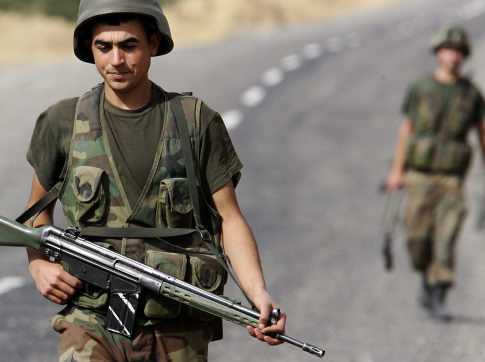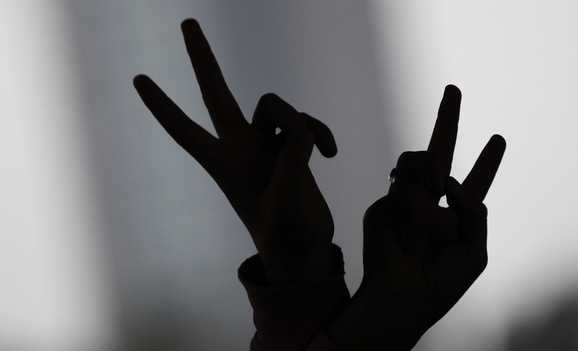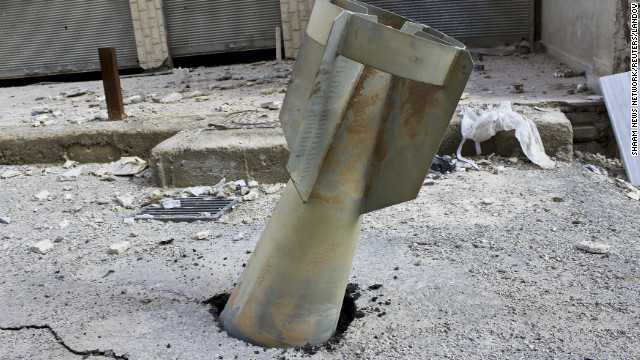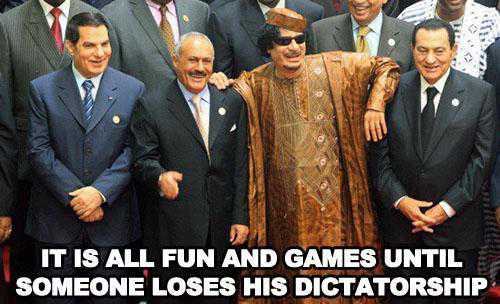Al-Qaida confirmed the killing of Osama bin Laden Friday and vowed revenge, saying Americans’ “happiness will turn to sadness” in the first statement by the terror network since its leader was slain in a U.S. commando raid against his Pakistani hideout.
The confirmation came as newly uncovered documents found in bin Laden’s residence revealed al-Qaida plans for derailing an American train on the upcoming 10th anniversary of the Sept. 11 attacks.
Terror experts have said bin Laden’s death on Monday was a setback for al-Qaida but the threat of attacks remains and could even spike in coming days from individuals or small extremist groups inspired to take revenge for the killing.
The statement, dated Tuesday but posted Friday on militant websites, opens the way for the group to name a successor to bin Laden. His deputy Ayman al-Zawahri is now the most prominent figure in the group and a likely contender to take his place.
“The blood of the holy warrior sheik, Osama bin Laden, God bless him, is too precious to us and to all Muslims to go in vain,” the statement said. “We will remain, God willing, a curse chasing the Americans and their agents, following them outside and inside their countries.”
“Soon, God willing, their happiness will turn to sadness,” it said, “their blood will be mingled with their tears.”
The group gave no indication how it will retaliate. But separate details emerged Friday showing that bin Laden was scheming how to hit the United States hard again.
Materials confiscated by the Navy SEALs who killed the al-Qaida leader in Abbotabad, Pakistan, reveal the rail attack planning as of February 2010. One idea outlined in handwritten notes was to tamper with an unspecified U.S. rail track so that a train would fall off the track at a valley or a bridge.
Counterterrorism officials said they believe the plot was only in the initial planning stages. The FBI and Homeland Security issued an intelligence bulletin with details of the plan to law enforcement around the country. The bulletin, marked “for official use only,” was obtained by The Associated Press.
Rather than making vehement cries of vengeance, the al-Qaida statement — entitled “You lived as a good man, you died as a martyr” — struck a tone of calmness and continuation. Though it included praise of bin Laden, much of the 11-paragraph statement was dedicated to underlining that al-Qaida would live on, depicting him as just another in a line of “martyrs” from the group.
“It is impossible, impossible. Sheik Osama didn’t build an organization to die when he dies,” the statement read. “The university of faith, Quran and jihad from which bin Laden graduated will not close its doors,” it added.
“The soldiers of Islam will continue in groups and united, plotting and planning without getting bored, tired, with determination, without giving up until striking a blow,” the statement.
It said bin Laden was killed “along an established path followed by the best of those who came before him and those who will come after him.”
In the statement, al-Qaida also called on Pakistanis to rise up in revolt against its leaders to “cleanse the shame.” It also said that an audio message bin Laden recorded a week before his death would be issued soon.
The writers of the statement appeared unaware of the announcement by American officials that bin Laden’s body had been buried at sea. The statement warned against mishandling or mistreating bin Laden’s body and demanded that be handed over to his family, saying “any harm (to the body) will open more doors of evil, and there will be no one to blame but yourselves.”
The statement’s authenticity could not be independently confirmed, but it was posted on websites where the group traditionally puts out its messages.
Reaction in the Islamic world to bin Laden’s death has been relatively muted compared with the rage that he long inspired, raising questions about his relevance in a region that has been changed by a wave of pro-democracy uprisings.
On Friday, hundreds of members of radical Islamic parties protested in several Pakistan cities against the American raid and in favor of bin Laden. Many of the people chanted “Osama is alive” and blasted the U.S. for violating the country’s sovereignty.
The largest rally took place in the town of Khuchlak in southwestern Baluchistan province, where about 500 people attended.
“America is celebrating Osama bin Laden’s killing, but it will be a temporary celebration,” said Abdullah Sittar Chishti, a member of the Jamiat Ulema Islam party who attended the rally in Khuchlak. “After the martyrdom of Osama, billions, trillions of Osamas will be born.”
============================================================
(CBS/AP)CAIRO – Al Qaeda on Friday confirmed the killing of Osama bin Laden and warned of retaliation, saying Americans’ “happiness will turn to sadness.”
The confirmation came in an Internet statement posted on militant websites, signed by “the general leadership” of al Qaeda. The announcement opens the way for the group to name a successor to bin Laden. His deputy Ayman al-Zawahri is now the most prominent figure in the group and is a very likely contender to take his place.
The statement, dated May 3, was the first by the terror network since bin Laden was killed Monday by U.S. commandos in a raid on his hideout in Abbottabad, Pakistan. The statement’s authenticity could not be independently confirmed, but it was posted on websites where the group traditionally puts out its messages.
The Killing of Osama bin Laden
“The blood of the holy warrior sheik, Osama bin Laden, God bless him, is too precious to us and to all Muslims to go in vain,” the statement said. “We will remain, God willing, a curse chasing the Americans and their agents, following them outside and inside their countries.”
“Soon, God willing, their happiness will turn to sadness,” it said, “their blood will be mingled with their tears.”
There was no indication how the group will retaliate. Rather than making vehement cries of vengeance, the statement — entitled “You lived as a good man, you died as a martyr” — struck a tone of calmness and continuation. Though it included praise of bin Laden, much of the 11-paragraph statement was dedicated to underlining that al Qaeda would live on, depicting him as just another in a line of “martyrs” from the group.
Obama: I won’t release bin Laden photos
“It is impossible, impossible. Sheik Osama didn’t build an organization to die when he dies,” the statement read. “The university of faith, Quran and jihad from which bin Laden graduated will not close its doors,” it added.
“The soldiers of Islam will continue in groups and united, plotting and planning without getting bored, tired, with determination, without giving up until striking a blow,” the statement.
It said bin Laden was killed “along an established path followed by the best of those who came before him and those who will come after him.”
In an interview with Steve Kroft for Sunday’s “60 Minutes” President Obama said he wouldn’t release post-mortem images of bin Laden taken to prove his death, largely out of concern that they would fuel anti-U.S. sentiment in the Middle East.
“It is important to make sure that very graphic photos of somebody who was shot in the head are not floating around as an incitement to additional violence or as a propaganda tool,” the president said.”We don’t trot out this stuff as trophies.
The president said he had discussed the issue with his intelligence team, including Defense Secretary Robert Gates and Secretary of State Hillary Clinton, and that they agree with the decision.
In explaining his choice not to release the photo, Mr. Obama said that “we don’t need to spike the football.” He said that “given the graphic nature of these photos it would create a national security risk.”
In the statement posted Friday, al Qaeda also called on Pakistanis to rise up in revolt against its leaders to “cleanse the shame.” It also said that an audio message bin Laden recorded a week before his death would be issued soon.
The writers of the statement appeared unaware of the announcement by American officials that bin Laden’s body had been buried at sea. The statement warned against mishandling or mistreating bin Laden’s body and demanded that be handed over to his family, saying “any harm (to the body) will open more doors of evil, and there will be no one to blame but yourselves.”
© 2011 CBS Interactive Inc. All Rights Reserved. This material may not be published, broadcast, rewritten, or redistributed. The Associated Press contributed to this report.
============================================================
SUPPLEMENTAL INFORMATION
Al-Qaeda ( /ælˈkaɪdə/ al-KY-də or /ælˈkeɪdə/ al-KAY-də; Arabic: القاعدة, al-qāʿidah, “the base” or “the foundation”), alternatively spelled al-Qaida and sometimes al-Qa’ida, is a global militant Islamist group founded by Osama bin Laden sometime between August 1988[6] and late 1989.[7] It operates as a network comprising both a multinational, stateless army[8] and a radical Sunni Muslim movement calling for global Jihad.
/ælˈkaɪdə/ al-KY-də or /ælˈkeɪdə/ al-KAY-də; Arabic: القاعدة, al-qāʿidah, “the base” or “the foundation”), alternatively spelled al-Qaida and sometimes al-Qa’ida, is a global militant Islamist group founded by Osama bin Laden sometime between August 1988[6] and late 1989.[7] It operates as a network comprising both a multinational, stateless army[8] and a radical Sunni Muslim movement calling for global Jihad.
Al-Qaeda has attacked civilian and military targets in various countries, such as the September 11 attacks, Beslan massacre, US embassy bombings and Bali bombings. The U.S. government responded by launching the War on Terror. Al-Qaeda has continued to exist and grow through the decade from 2001 to 2011.[9]
Characteristic techniques include suicide attacks and simultaneous bombings of different targets.[10] Activities ascribed to it may involve members of the movement, who have taken a pledge of loyalty to Osama bin Laden, or the much more numerous “al-Qaeda-linked” individuals who have undergone training in one of its camps in Afghanistan, Pakistan, Iraq or Sudan, but not taken any pledge.[11]
Al-Qaeda ideologues envision a complete break from the foreign influences in Muslim countries, and the creation of a new Islamic caliphate. Reported beliefs include that a Christian-Jewish alliance is conspiring to destroy Islam,[12] which is largely embodied in the U.S.-Israel alliance, and that the killing of bystanders and civilians is religiously justified in jihad.
Al-Qaeda is also responsible for instigating sectarian violence among Muslims.[13] Al-Qaeda is intolerant of non-Sunni branches of Islam and denounce them with excommunications called “takfir”. Al-Qaeda leaders regard liberal Muslims, Shias, Sufis and other sects as heretics and sometimes issue attacks on their mosques and gatherings.[14] Examples of sectarian attacks include the Yazidi community bombings, Sadr City bombings, Ashoura Massacre and April 2007 Baghdad bombings.[15]
Al-Qaeda is also known as the International Islamic Front for Jihad Against the Crusaders and the Jews.[
 Mustafa Ozer/Getty
Mustafa Ozer/Getty





 Osama bin Laden and al Qaeda statement confirming OBL’s death. (CBS/AP)
Osama bin Laden and al Qaeda statement confirming OBL’s death. (CBS/AP)